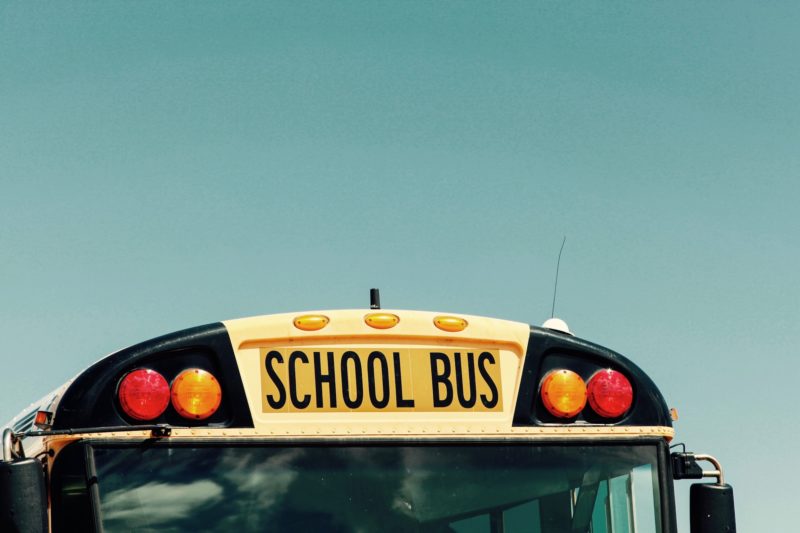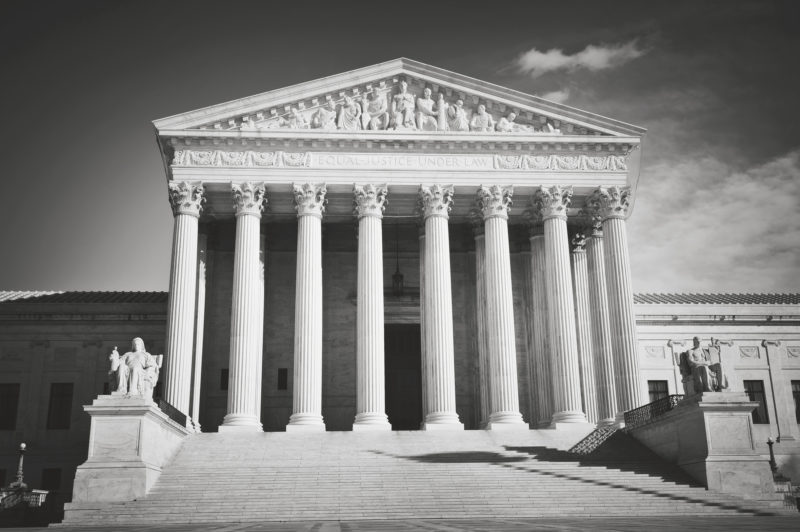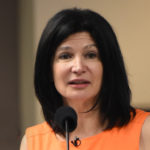 Before she was appointed U.S. Secretary of Education, Betsy DeVos spent the better half of two decades on an expensive, dogged crusade to bring school vouchers to her home state of Michigan. Bankrolled by the limitless financial resources of the DeVos Family Foundation, her efforts helped fuel other school choice initiatives - namely lifting caps on charter school expansion - but no amount of political contributions or slick marketing campaigns was enough to do the same for vouchers.
Before she was appointed U.S. Secretary of Education, Betsy DeVos spent the better half of two decades on an expensive, dogged crusade to bring school vouchers to her home state of Michigan. Bankrolled by the limitless financial resources of the DeVos Family Foundation, her efforts helped fuel other school choice initiatives - namely lifting caps on charter school expansion - but no amount of political contributions or slick marketing campaigns was enough to do the same for vouchers.
So what got in the way?
Aside from the fact that the idea of funneling public taxpayer money to pay tuition for private schools, including religious institutions, is an enormously unpopular and harmful idea, a sizeable share of the credit has to go to a provision in Michigan's constitution.
Michigan is one of 38 states that has strict state constitutional prohibitions against state or local financial assistance to non-public schools. In most of those states, the prohibition is specifically against aid to religious institutions, including schools. These prohibitions were adopted in many of these states in the nineteenth century as part of the common school movement and were intended to prevent public funding of religious schools.
In recent years, opponents of these provisions have sought to recast them as anti-Catholic provisions and tagged them as “Blaine amendments” after a failed 1875 effort by Congressman James G. Blaine to amend the federal constitution to prohibit governmental aid to religious organizations.
While the federal Blaine amendment effort was clouded by anti-Catholic bias, the state constitutional prohibitions against aid to religion were not and cannot be dismissed summarily, as voucher proponents would have it, by tarring them as mini “Blaine amendments.”
The Supreme Court will soon weigh in on the strength of such state “No Aid” provisions. By June of this year the Supreme Court - particularly if it is joined by a ninth member - could decide that interpreting these provisions to prevent religious institutions from receiving public funds violates the federal Constitution. This could push the door open for school vouchers on a national scale, giving an enormous and timely boost to Donald Trump's and Betsy DeVos' ambitious school privatization agenda.
It's an agenda, says NEA President Lily Eskelsen García, that siphons off taxpayer dollars from public schools for private and for-profit schools - all at the expense of students.
"For too long, these schemes have experimented with our children’s education without any evidence of real, lasting positive results."
 In 2017, the U.S. Supreme Court may issue a decision that could push the door open for school vouchers on a national scale.
In 2017, the U.S. Supreme Court may issue a decision that could push the door open for school vouchers on a national scale.
What Do Recycled Tires Have to Do With School Vouchers?
The case the Court will consider this year doesn't actually involve a school at all. Trinity Lutheran Church of Columbia, Inc. v. Pauley centers around a statewide aid program in Missouri that helps organizations turn used tire scraps into rubber surfacing material for playgrounds. Supply is limited, so the state selects who receives the aid.
The Trinity congregation, which runs a daycare center for children, applied for a grant, but was turned down by state officials given the Missouri constitution's “No Aid” provision.
Trinity Lutheran sued, arguing that the state constitutional prohibition is inherently "hostile" to religion because it violates the neutrality principle of the Free Exercise Clause of the First Amendment. The church asserts that a government program – in this case, a grant for playground covering – that treats a religious organization different from a secular organization is unconstitutional.
But Richard Katskee, legal director at Americans United for Separation of Church and State, says the prohibition against direct financial aid to churches “stands at the very heart of the First Amendment’s Establishment Clause.”
In a post on ScotusBlog, Katskee writes: “Whether to adhere to a particular faith and pay to support a church, or to support none at all, was seen [by the Framers] as the fundamental right of every individual. State financial support for churches is still forbidden by the First Amendment – out of respect for religious freedom.”
Indeed, state constitutional prohibitions against government aid to religion support religious freedom rather than undermining it, says Alice O'Brien, General Counsel at the National Education Association, which filed an amicus brief in support of the Missouri Department of Natural Resources, the respondent in the case.
"They prevent the government from forcing individuals of one religion to support another religion, and prevent the government from appearing to favor one religion over another. They also protect the independence of religious institutions, given that government grants inevitably go hand-in-hand with government regulation. " O'Brien explains.
Audio: NEA President on School Vouchers On March 6, NEA President Lily Eskelsen García was interviewed on the "Maggie Linton Show" on SiriusXM to talk about how voucher schemes prey upon the nation's most disadvantaged students.
On March 6, NEA President Lily Eskelsen García was interviewed on the "Maggie Linton Show" on SiriusXM to talk about how voucher schemes prey upon the nation's most disadvantaged students.
A ruling in Trinity Lutheran that prohibits states from enforcing their own constitutional prohibitions against state aid to religion, says O'Brien, "could open the door to significantly expanded state school voucher programs including ones that fund pervasively sectarian schools."
But the Court may issue a narrower decision that is limited to the facts of the case before it, leaving to another day the question of how far states may go in prohibiting aid to religious schools.
School voucher advocates may have a clearer shot at such state constitutional prohibitions with Colorado State Board of Education v. Taxpayers for Public Education.
In 2015, the Colorado Supreme Court struck down a voucher program created by Douglas County, a suburban district of 67,000 students just outside of Denver, that used a shell charter school to transfer funds to private schools. The State and school district have now asked the Supreme Court to review the case. The outcome of the Douglas County case may hinge on how the justices rule on the Trinity Lutheran case.
The Fifth Vote
How this plays out may well depend on if, and when, Neil Gorsuch, Trump's nominee to fill the ninth seat on the Supreme Court, is confirmed by the U.S. Senate. Most experts see him as the ideological heir to Antonin Scalia, although Gorsuch during his years as a federal appeals court judge hasn't ruled in any cases involving state “No Aid” provisions or school voucher programs.
However, a red flag can be found in a 2005 article he wrote for the conservative magazine National Review, which included the following criticism of so-called judicial activism:
“American liberals have become addicted to the courtroom, relying on judges and lawyers rather than elected leaders and the ballot box, as the primary means of effecting their social agenda on everything from gay marriage to assisted suicide to the use of vouchers for private-school education.” (emphasis added)
A ruling in Trinity Lutheran that prohibits states from enforcing their own constitutional prohibitions against state aid to religion, says O'Brien, "could open the door to significantly expanded state school voucher programs including ones that fund pervasively sectarian schools."
On so-called "religious liberty" cases, Gorsuch very much falls in line with other conservative justices. For example, in 2013, he voted to allow privately-held for-profit corporations both to claim religious beliefs as entities, and to use those beliefs to deny contraceptive coverage to employees - the famous "Hobby Lobby" case that eventually made it to the Supreme Court.
Gorsuch's potential vote to strike down state constitutional prohibitions against religious aid could remove a significant obstacle to school vouchers and is just one of the many ways the next Court could impact public education in the United States.
As the Trump administration ramps up its efforts to push school vouchers nationwide, a decision in the Trinity Lutheran case that eliminates a constitutional safeguard against using taxpayer money for private and religious school tuition will have an immediate and troubling impact.
School privatization advocates will undoubtedly celebrate such a ruling, but that doesn't change the fact that vouchers are nothing more than a scheme to take public money and hand it over to private schools that have little or no accountability to taxpayers, says Eskelsen García.
“Private and for-profit schools that receive taxpayer-funded vouchers have almost complete autonomy on how they operate. They don’t have to follow academic standards, don’t have to hire qualified teachers and don’t have to disclose financial decisions to the public. A child’s success should not depend on a gamble."
The Supreme Court is scheduled to hear arguments in Trinity Lutheran Church of Columbia, Inc. v. Pauley in April, and is expected to issue a decision by late June.
____________________________________________
Take Action: Contact your Senators and tell them to vote NO on Neil Gorsuch for the Supreme Court





